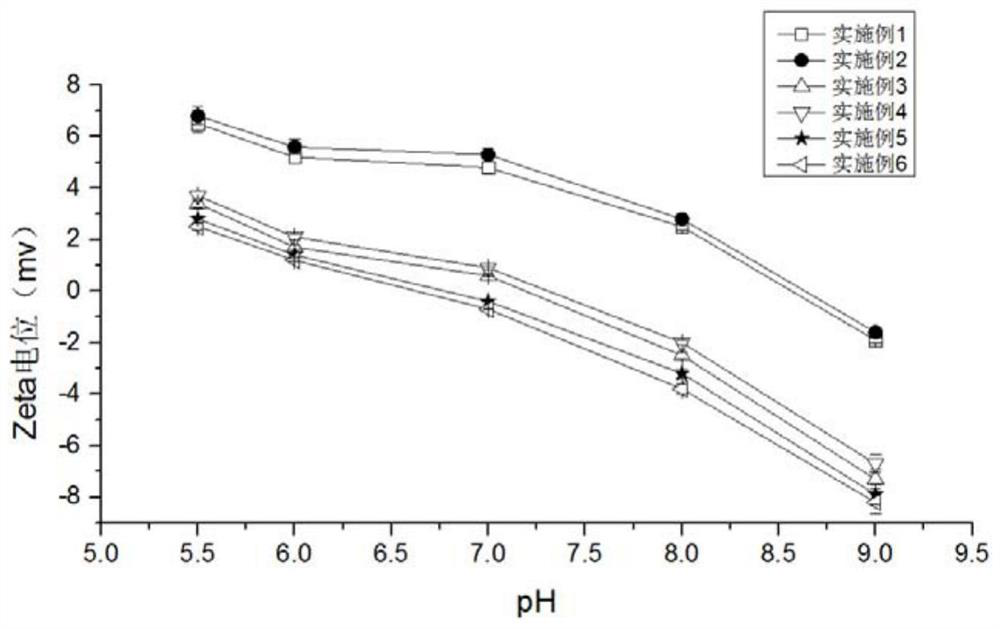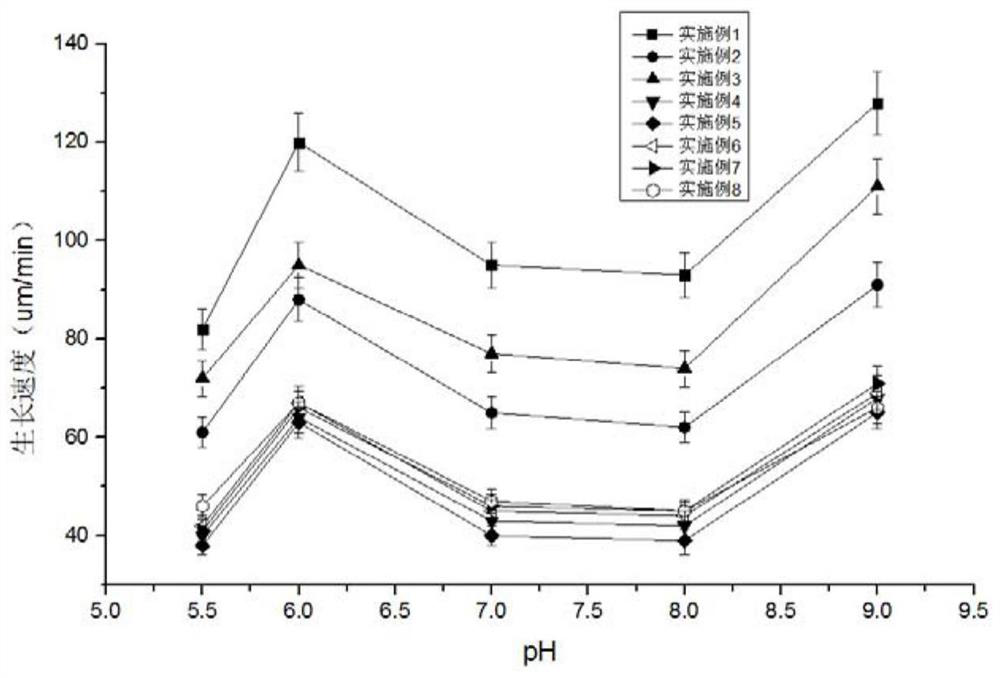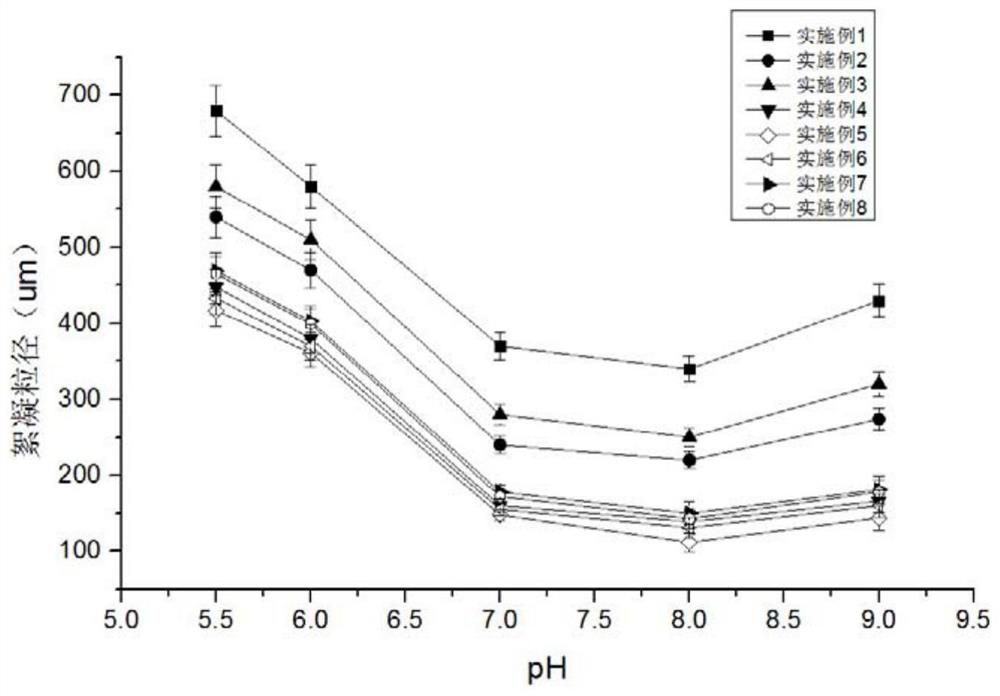Purification method of microplastics in pond culture seawater
A technology for microplastics and aquaculture water, applied in the field of environmental pollution research, can solve problems such as marine biological hazards, and achieve the effects of promoting adsorption and bridging, reducing the use and increasing the particle size of flocs
- Summary
- Abstract
- Description
- Claims
- Application Information
AI Technical Summary
Problems solved by technology
Method used
Image
Examples
Embodiment 1
[0035] 1. A preparation method of microbial flocculant, comprising the following steps:
[0036] The bacterial strain used is Bacillus licheniformis DHS-40, and the culture medium used includes:
[0037] LB solid medium: peptone 10.0g, yeast powder 5.0g, NaCl 10.0g, agar powder 1.5-2.0%, distilled water 1000mL, pH value 7.0, sterilized by high temperature steam at 121°C for 20min.
[0038] Expanded medium: soybean oil 0.49%, soybean meal hydrolyzate 5.0g / L, potassium dihydrogen phosphate 0.2g / L, calcium chloride solution (7.5g / L) 26μL / L, manganese sulfate solution (2.0g / L) 260μL / L, ferrous sulfate solution (2.0g / L) 100μL / L.
[0039]Inoculate Bacillus licheniformis into the liquid medium for expanded culture, collect the bacteria by centrifugation, wash the bacteria repeatedly with 10mM Tris.HCl (pH 8.0) solution and redissolve them to form a cell suspension. , to obtain cell crushing products; at 0-2°C, add ammonium sulfate solid powder to the cell crushing products to form...
Embodiment 2
[0046] When carrying out flocculation, no radhamone was added, and the rest were exactly the same as in Example 1.
Embodiment 3
[0048] No 4-hydroxy-3-methoxybenzyl alcohol was added during flocculation, and the rest was exactly the same as in Example 1.
PUM
 Login to View More
Login to View More Abstract
Description
Claims
Application Information
 Login to View More
Login to View More - R&D Engineer
- R&D Manager
- IP Professional
- Industry Leading Data Capabilities
- Powerful AI technology
- Patent DNA Extraction
Browse by: Latest US Patents, China's latest patents, Technical Efficacy Thesaurus, Application Domain, Technology Topic, Popular Technical Reports.
© 2024 PatSnap. All rights reserved.Legal|Privacy policy|Modern Slavery Act Transparency Statement|Sitemap|About US| Contact US: help@patsnap.com










